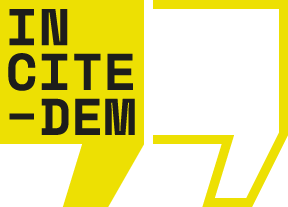
Challenges for local democratic processes
INCITE-DEM is an EU-funded Horizon Europe project that seeks to foster inclusive participation of citizens and communities in sustainability challenges while co-designing democratic innovations. Join us for this morning chat to find out more about the latest findings about the challenges our democracies are facing.
Venue
“The House of Connections”
Grote Markt 21
9712 HR Groningen
Date
8th of March 2024
from 9:30 to 11:30
9:30 – welcome coffee
10:00 – 11:30 – Insights into challenges for local democratic processes
The session offers three key takeaways from INCITE-DEM’s research into democratic innovations and the challenges of democratic participation:
Democratic innovations and sustainability: a historical review by Roberto Falanga
In the last few decades, the debate on citizen participation in policy and decision-making has grown worldwide. Nevertheless, little is known on the historical roots and trajectories that different “democratic innovations” have taken to achieve goals of environmental and social sustainability. This presentation focuses on the history of three main innovations: participatory budgeting, deliberative mini-publics, as well as collaborative and participatory governance to highlight emerging trajectories in Europe since the aftermath of the Second World War.
Do citizens turn their back on democracy? Democratic attitudes in comparison by Bernd Schlipphak, Oliver Treib and Caner Simsek
Recent public debates indicate that citizens have become more sceptical toward representative democracy and the political actors representing them, instead favouring more direct and even populist forms of democracy. However, little systematic research has been done on whether such a development has actually taken place and to what extent such trends vary between different societal groups and countries. Based on data from the European Social Survey, this presentation sheds systematic light on these questions.
The dialogue tool: an agent-based simulation to support discussions on local democratic processes by Wander Jager & Shaoni Wang
Oftentimes local communities are invited to discuss the possible implementation of a plan. Such meetings may be dominated by outspoken people with strong opinions, causing more vulnerable groups to be less heard. We have developed an easy-to-use simulation tool that demonstrates how this sometimes may lead to people complying with a plan whilst being unhappy with it, or even eroding the community network. We will demonstrate this dialogue tool, which is aimed at making a community more aware of these risks and supporting community decision-making.
